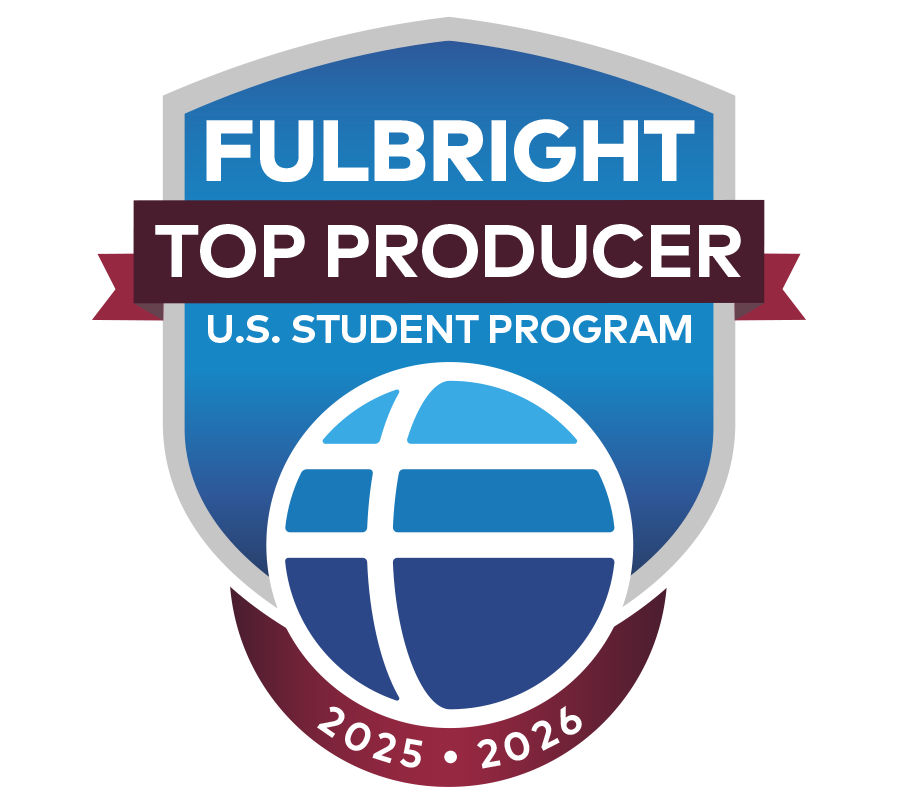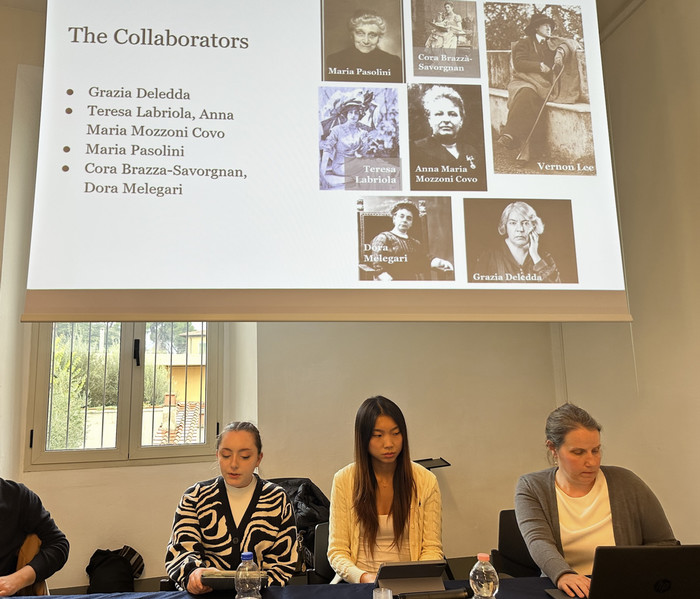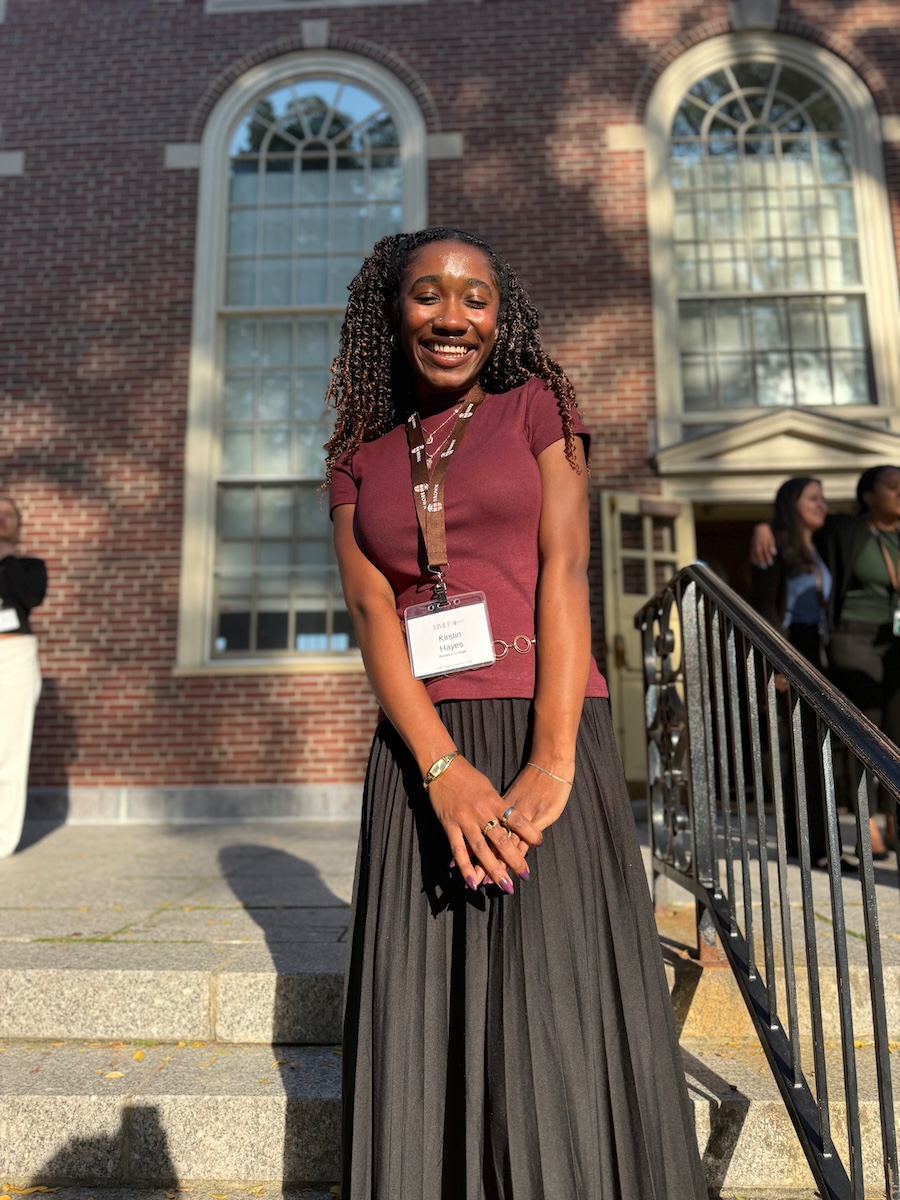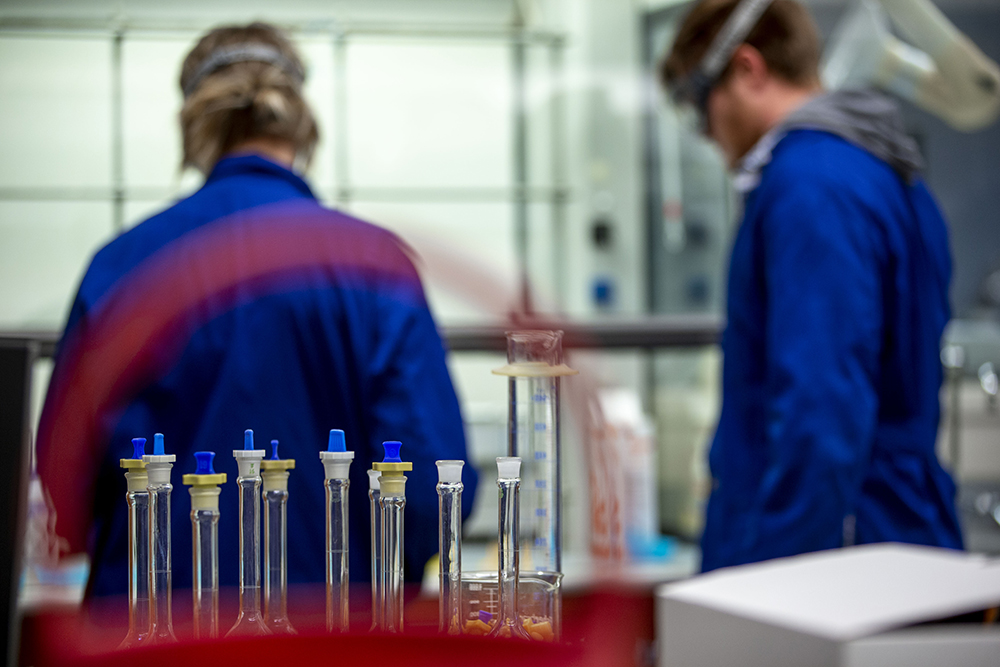Student Fellows on Why Their Research Matters
By Rebecca GoldfineThis focused time, when students can address a question or problem that fascinates them the most, often leads to a yearlong honors project or independent study.
We caught up with ten fellows this July to ask them about their research and why it is meaningful to them—and to the wider world.
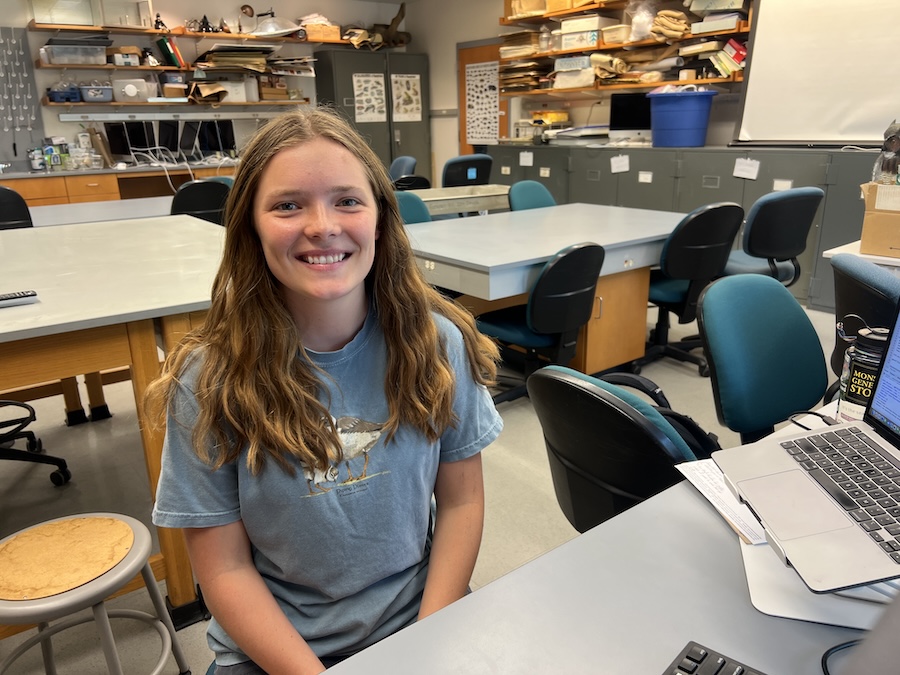
Riley Simon ’26, biology
“Using Large Participatory Science Datasets to Study Recent Range Expansions in the Lesser Black-Backed Gull”
Simon has a grant from the Gibbons Summer Research Program to collect and analyze data about lesser black-backed gulls on eBird, an open-access community science platform. She's studying reports from bird watchers to investigate the range expansion of the gulls to North America from Europe and Asia. “What are they doing here?” she's asking. “Are they establishing a wintering population? Are they migrating here to hang out in the winter and returning to Greenland to breed, or are there young birds establishing a breeding population in North America?”
Why this researching is meaningful: “The use of participatory citizen-science data is a meaningful part of this project—it's a valuable tool that's growing exponentially. We can study the range expansion of the black-backed gull as it's happening.”
Faculty advisor: Liam Taylor, Doherty Kent Island Postdoctoral Scholar in Biology
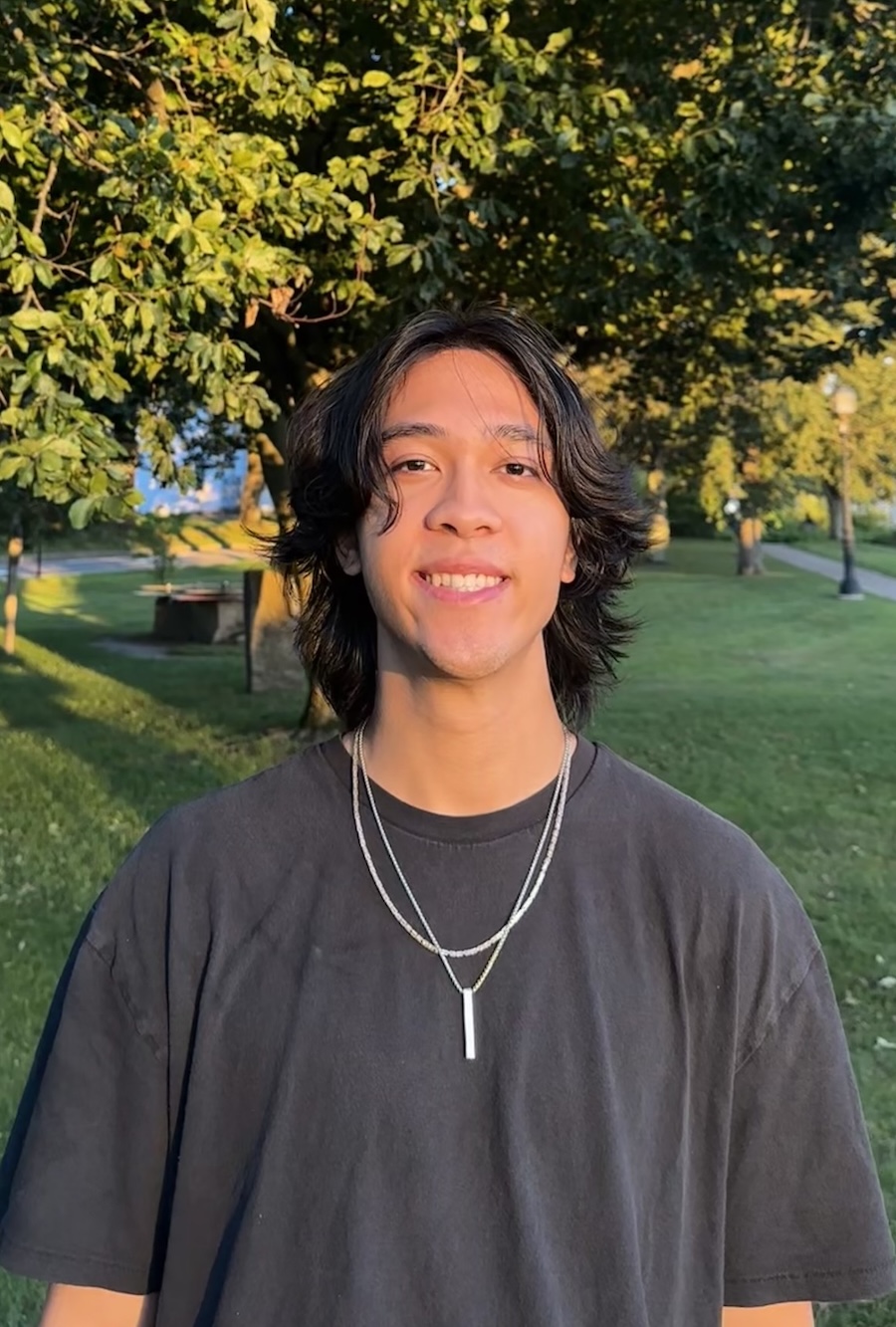
Eric Pieper ’27, chemistry
“Investigating the Lipid-Binding Affinities of srGAP1 Proteins”
Pieper has a Dana Walker Mayo Fund Fellowship to study a protein responsible for creating filopodia, which are specialized structures in the brain that help form neural connections. Improper connections can lead to autism spectrum disorder or intellectual disabilities. “I study these complicated processes in the brain to hopefully figure out the underpinnings behind them and see how they contribute to disorders that affect a large portion of our population,” Pieper said.
Why this research is meaningful: “I think everyone knows someone with autism spectrum disorder, which is why this is so important.”
Faculty advisor: Michael Henderson, assistant professor of chemistry
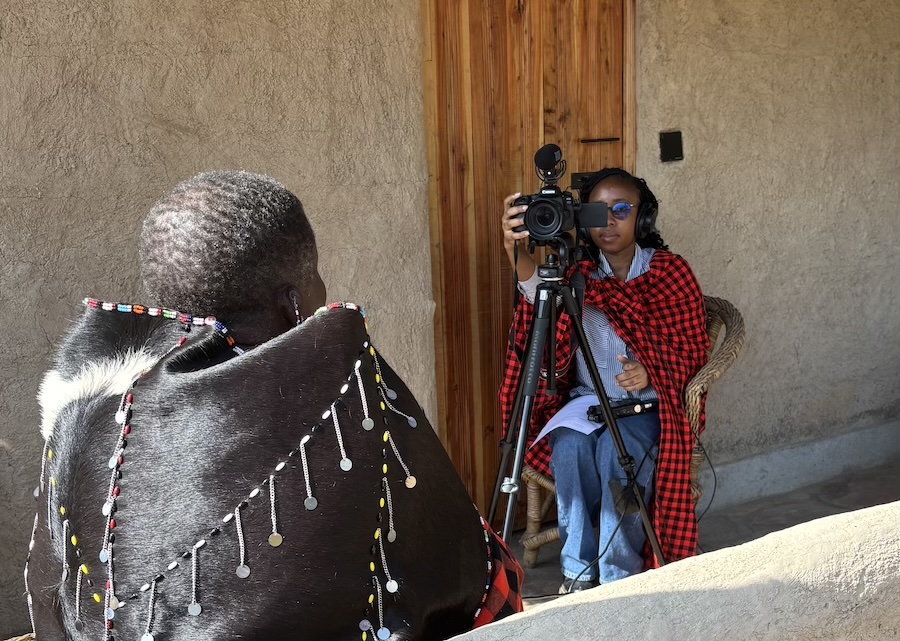
Aurélie Nishimwe ’26, cinema studies
“Documenting African Spiritualities through Ethnographic Filmmaking”
Nishimwe has a fellowship from the Robert and Blythe Edwards Fund for the Arts to document the spiritual and religious beliefs of Rwandans and the Maasai community in Kenya. An aspiring filmmaker, she is making an ethnographic documentary based on her visits and interviews with a group that has received her with open arms. “I realized there is a gap in my knowledge about African spirituality and religion,” she said. Raised in the Catholic tradition in Rwanda, she said part of her motivation comes from her interest in deepening her knowledge about her country's history and pre-colonial traditions.
Why this research is meaningful: “There is a lot of literature about Greek mythology and Norse mythology but not enough literature or knowledge about African mythology and spirituality, which is just as important. This is my contribution to the study of African spirituality, so it can be preserved.”
Faculty advisor: Tricia Welsch, professor of cinema studies, and Adanna Kai Jones, assistant professor of dance
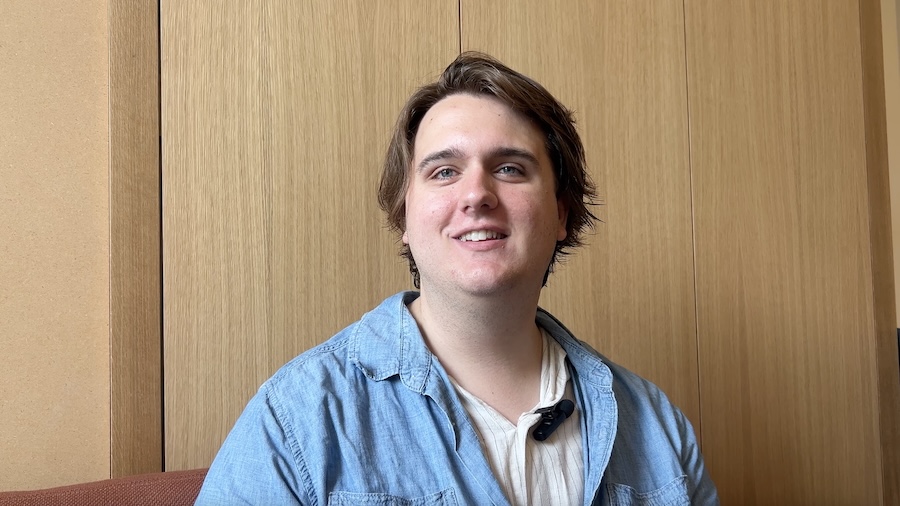
Sam Turrigiano ’26, classics
“Mourning and Memory in Ancient Rome”
Turrigiano has a Surdna Foundation Undergraduate Research Fellowship to explore “how ancient Romans and ancient Greeks discussed and dealt with death and grief, and loss generally.” He's examining both the archaeological remains of the civilization and reading Roman writers, including Cicero and Ovid. Ovid describes in his poetry the anguish he experiences after being exiled from Rome. “It would be like being banished from Brunswick as a Bowdoin student,” Turrigiano said. “Or perhaps you are a student who is studying in the United States and you are told you have to leave the country because they don't want you any more.”
Why my research is meaningful: “Grief is the one thing that defines all human experience...It is a great bridge and it's a great comfort, to me at least, to know that what I am going through has been gone through before.”
Faculty advisor: Barbara Boyd, Winkley Professor of Latin and Greek
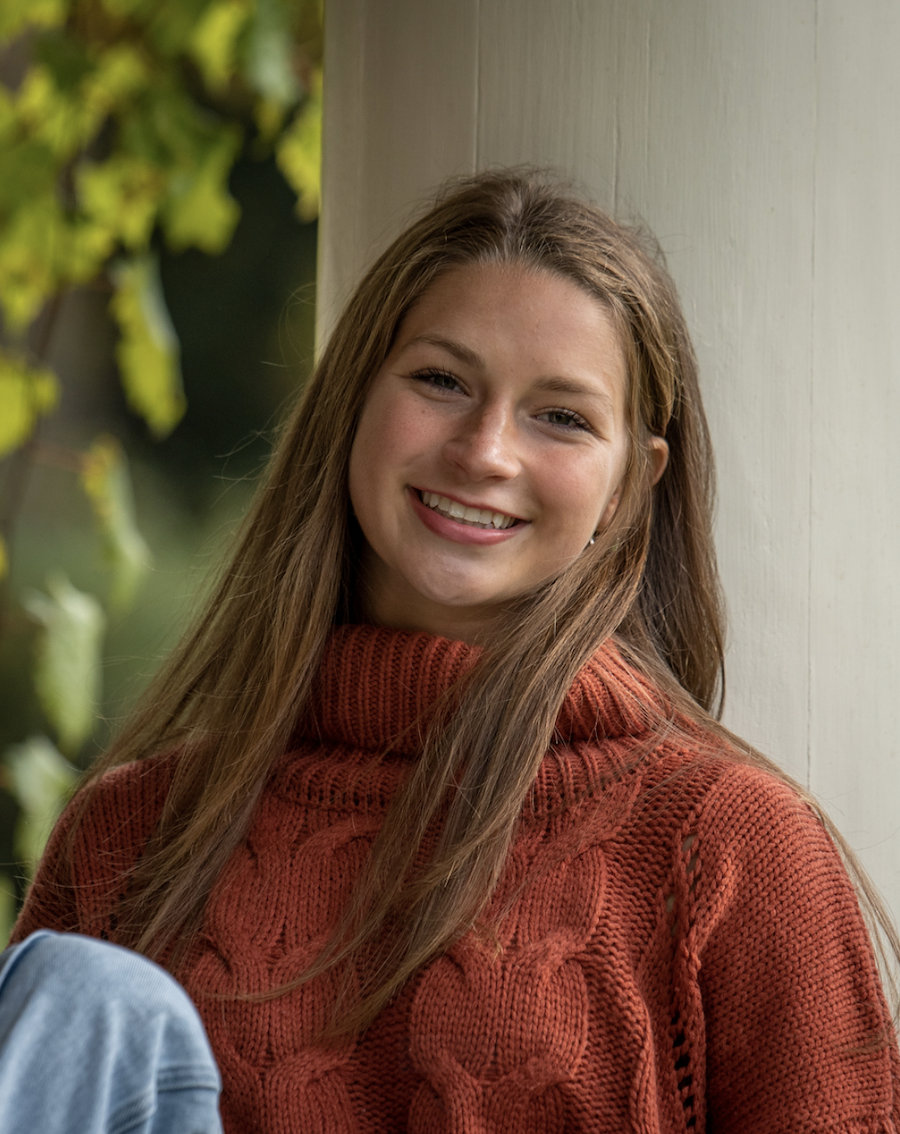
Mary Rainey ’27, digital and computational studies
“The Impact of Psychological Stress and Burnout on ACL Injury Recovery Rates in College Athletes”
Rainey has a Kaufman Family Fellowship to survey more than fifty college athletes and analyze the relationship between their stress levels and ACL injury recovery rates. ACL tears—or tears in a knee ligament—are common, especially for female athletes and soccer players, Rainey's sport. “It is very personal to me, not only to bring awareness to the importance of prioritizing athletes' mental health, but also to show that mental health challenges can manifest physically in the form of recovery rates, or even injury rates.”
Why my research is meaningful: “Through this research, I hope to better understand the psychological and social factors behind ACL recovery rates to ultimately contribute knowledge to those athletes navigating the process.”
Faculty advisor: Vianney Gomezgil Yaspik, assistant professor of digital and computational studies
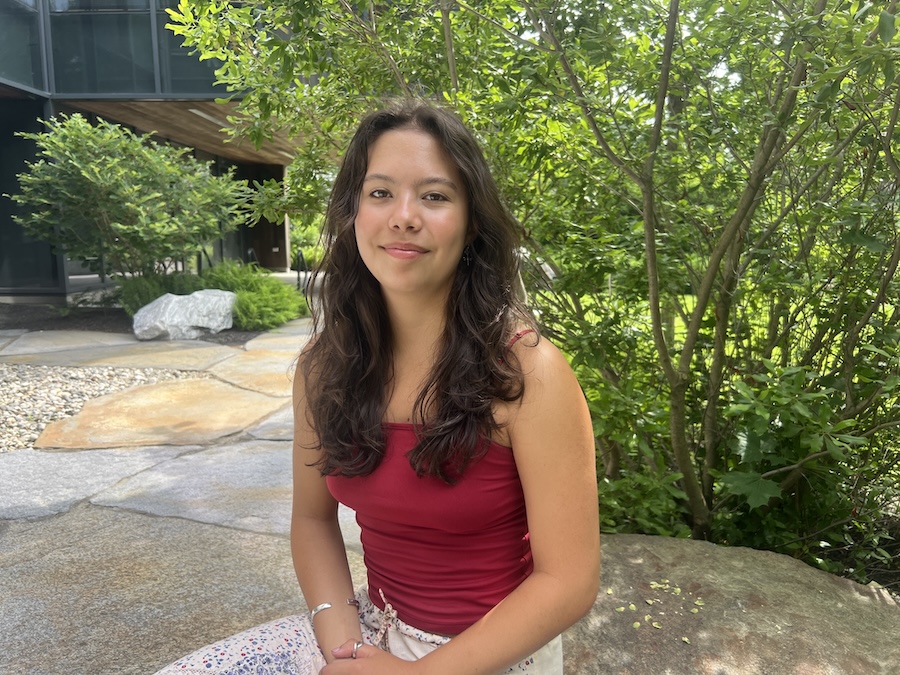
Josefina Cachuela ’27, earth and oceanographic science
“Researching the Effect of Changing Precipitation and Snowpack/River Ice Patterns on Streamflow in Maine”
With a Hughes Family Summer Research Fellowship, Cachuela is measuring and classifying snow and ice cover on Maine rivers to study how this seasonal process is shifting. “Climate change is causing extreme weather all over the world, but in Maine especially it's increasing precipitation and storm events, which results in flooding as more water runs off into rivers and into the Gulf of Maine,” Cachuela said. As an environmental studies and EOS major, she added, “I am interested in studying and mitigating the effects of climate change.”
Why this research is meaningful: “I am interested in the real-world applications of hydrology and how we can use that knowledge to help minimize the effects of flooding.”
Faculty advisor: Jabari Jones, assistant professor of earth and oceanographic science
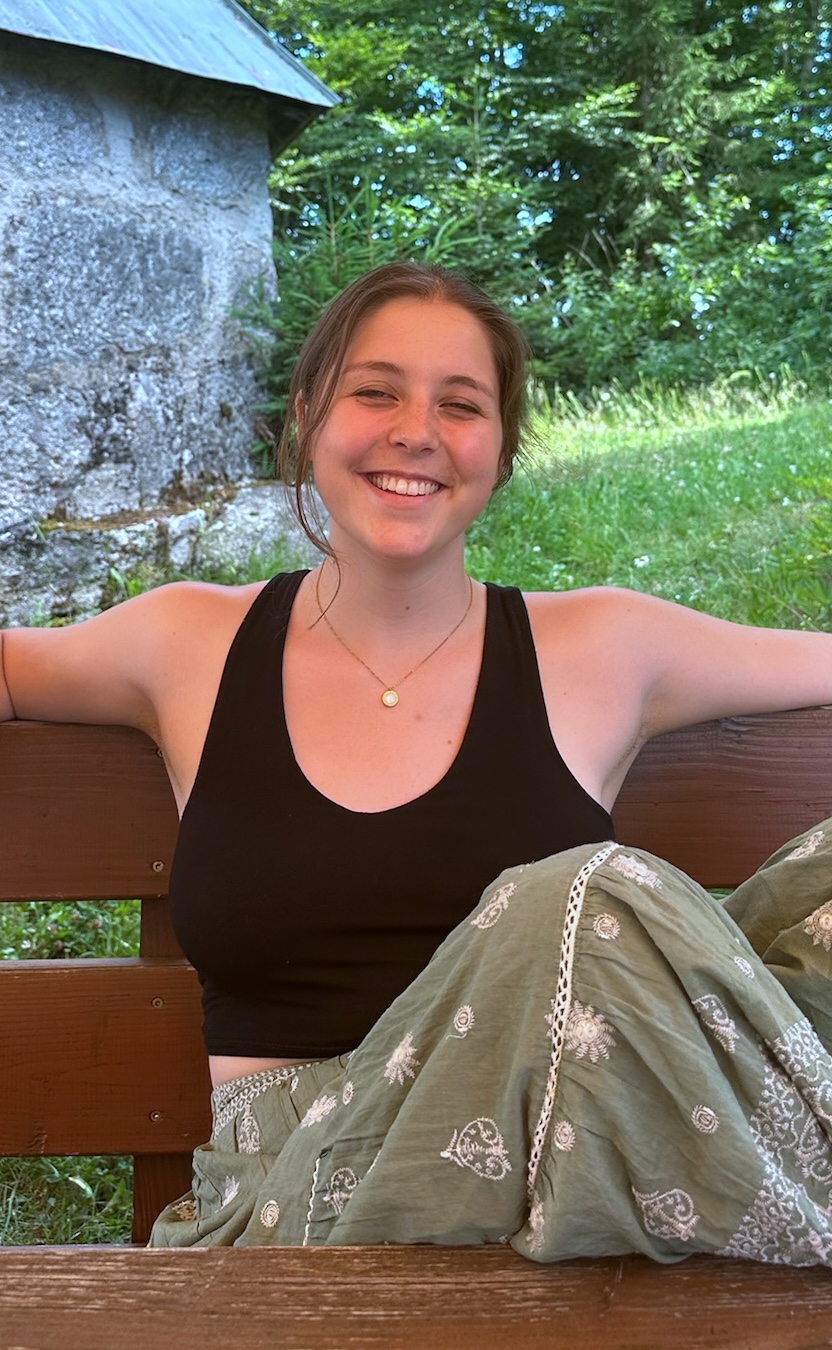
Nikki Harris ’26, English
“Essays on Ethics”
Harris, who wants to pursue a career in journalism, received the Nellie C. Watterson Summer Fellowship to work on a collection of essays on topics from journalism to physical theater. “One essay is about whether and when a reporter's sources should be able to read, edit, and retract their interview quotes before a story is published,” she explained. While giving sources the right to review quotes could discredit a publication’s claim to editorial integrity, those who are taking a risk by going on the record deserve more say over what gets printed in their name, she argues.
Why my research is meaningful: “Many American publications forbid all quote approval practices, which I don’t think is the best approach. I wanted to figure out guidelines that would be fair, beneficial, and honest to reporters, sources, and readers.”
Faculty advisor: Jordan Kisner, assistant professor of English

Sofia Fogg ’26, government
“The Lost Art of Learning: A Case for Liberal Education in Our Modern Age”
Fogg received a Bowdoin research award to focus on “the relevance and application of a liberal education to democratic regimes and systems,” she explained. “I am trying to figure out how we can reconcile liberal education as a system with educating a democratic citizen, and if you necessarily need political ends, or if liberal education can exist as something in and of itself and still be beneficial and compatible to our democracy.”
Why this research is meaningful: “I'm thinking about the founding principles for our American regime: life, liberty, and the pursuit of happiness. I'm interested in thinking about a liberal education as a means by which we achieve happiness. If we're given this inalienable right to pursue happiness, does that mean a liberal education is deeply fundamental to cultivating a citizen in our democracy?”
Faculty advisor: Paul Franco, Barry N. Wish Professor of Government and Social Studies
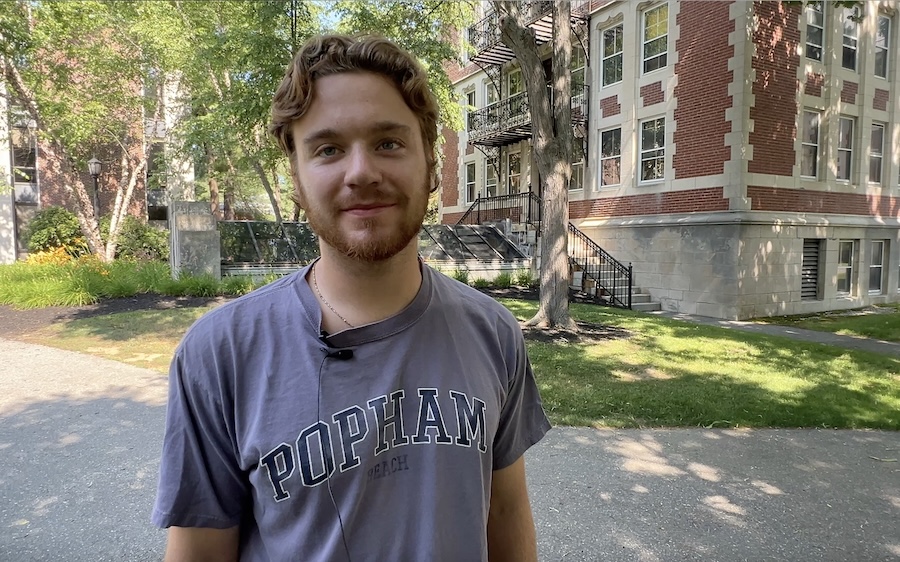
Alex Ordentlich ’26, physics and earth and oceanographic science
“Experimental Analysis of Fire Turbulence and Ember Lofting”
Ordentlich received a Burns Fellowship to study how wildfires spread through their interactions with the atmosphere. Using Bowdoin's high-performance computers, he's calculating the number, speed, and velocity of embers observed in videos of a controlled fire set for research purposes. Fires are impacted by many variables, he continued, and “it's important to investigate all the different parts of them. We're specifically looking at embers and how their lofting rate effects their carrying distance and the spread rate of fires.”
Why this research is meaningful: “Doing this analysis and these experiments can help...improve wildfire models, so we can predict them better and help firefighters anticipate where, how, and how fast the fires will spread.”
Faculty advisor: Alec Petersen, visiting assistant professor of earth and oceanographic science and physics

Ethan Lam ’27, psychology
“What Motivates Spontaneous Aid in Cooperative Tasks?”
Lam received a Lifson Family Summer Research Fellowship to “investigate the cognitive mechanisms behind collaboration and communicative action in problem-solving scenarios,” such as what motivates people to help others. One of their findings—that people's actions tend to be guided not just by their goals but also by who is observing them—has many implications. “...It can inform evidence-based policies to foster more effective teamwork in educational and workplace settings, guide the development of AI systems, enhance behavioral-economic models of public-goods contributions, and much more,” Lam said.
Why this research is meaningful: “Translating these insights into practice strengthens our understanding of collaboration and has the potential to promote more cohesive and productive communities.”
Faculty advisor: Abhilasha Kumar, assistant professor of psychology
